Animal identification Normal Worksheets for Ages 4-6
11 filtered results
-
From - To
Unlock the wonder of the animal kingdom with our engaging Animal Identification Normal Worksheets designed for ages 4-6. These educational printables from Kids Academy boost learning skills by helping young learners recognize and name a variety of animals. Each worksheet is thoughtfully crafted to strengthen observation and critical thinking abilities while sparking curiosity about wildlife. Perfect for classroom or home use, these resources make learning fun and interactive. Encourage your child's natural inquisitiveness and enrich their early education journey with our quality, easy-to-follow animal identification activities. Discover the joy of learning with Kids Academy today!
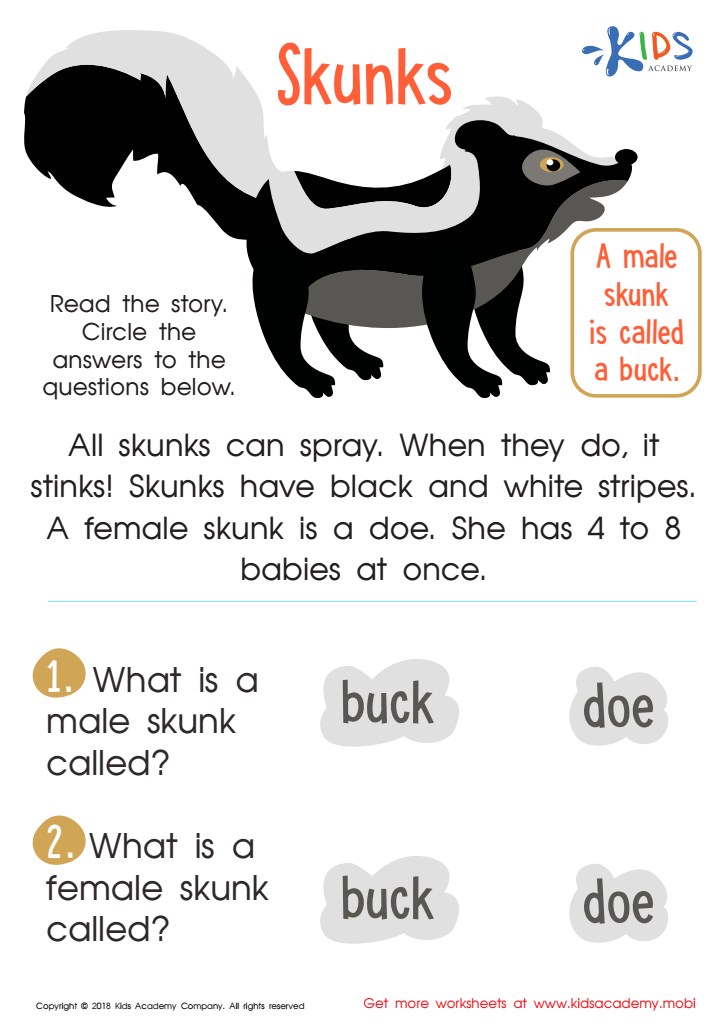

Skunks Worksheet


Carnivores Worksheet
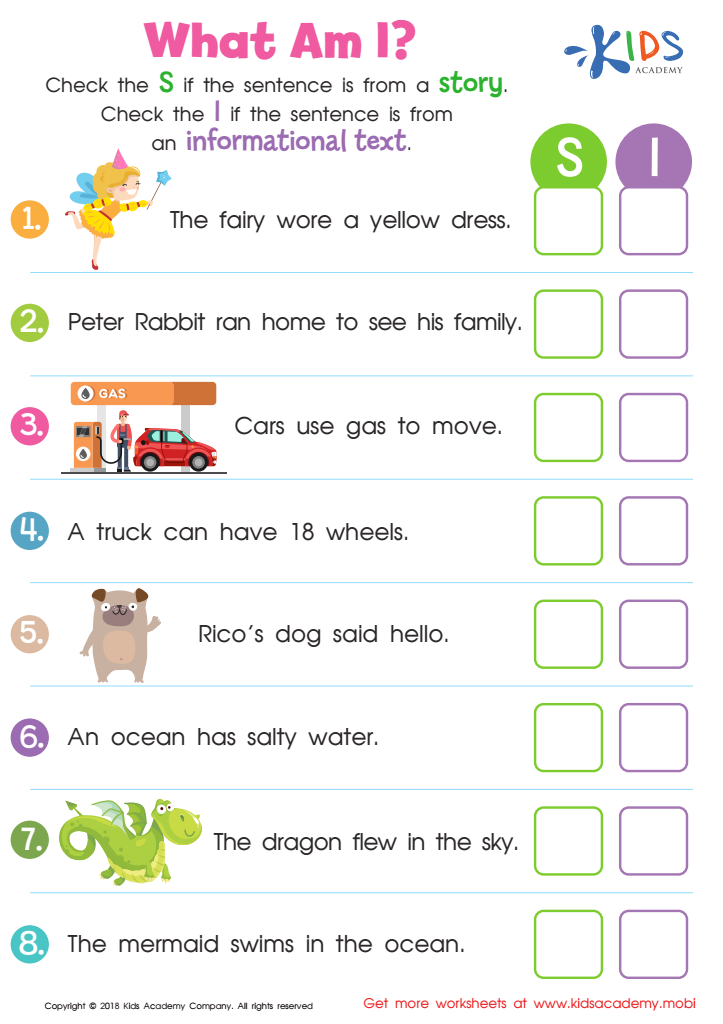

What Am I? Worksheet
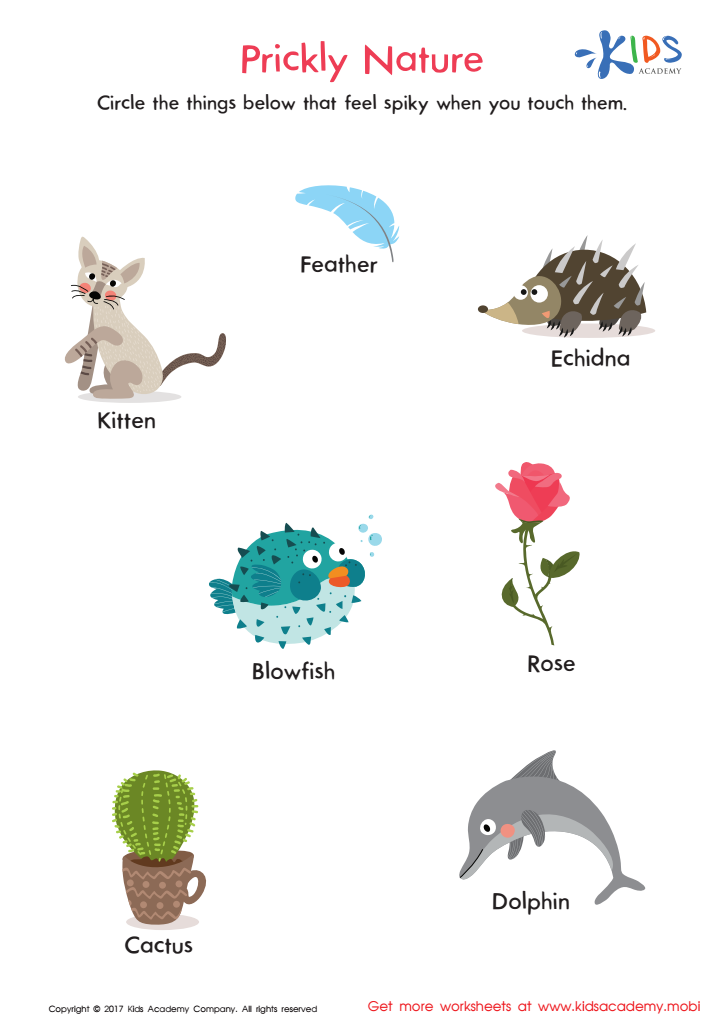

Prickly Nature Worksheet
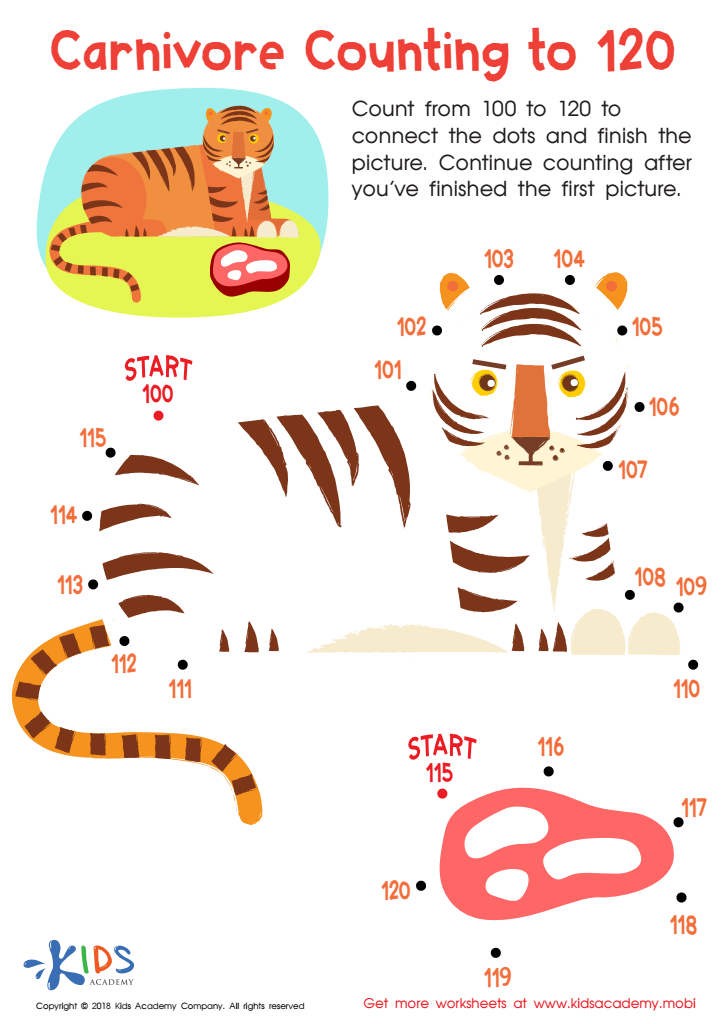

Carnivore Counting to 120 Worksheet
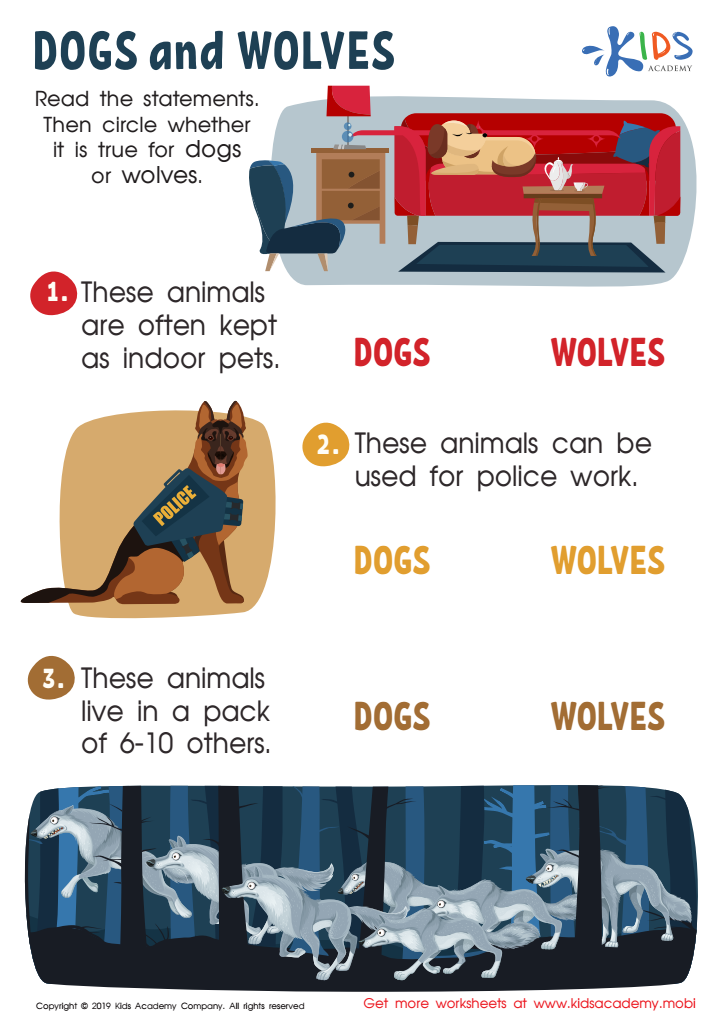

Dogs and Wolves Worksheet
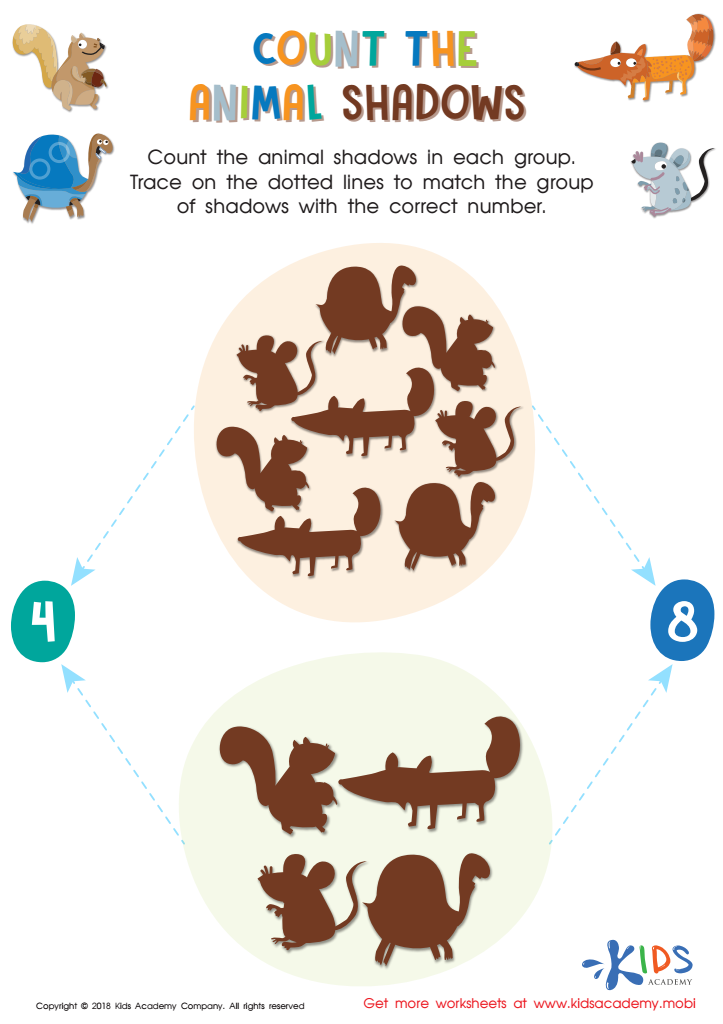

Count the Animal Shadows Worksheet
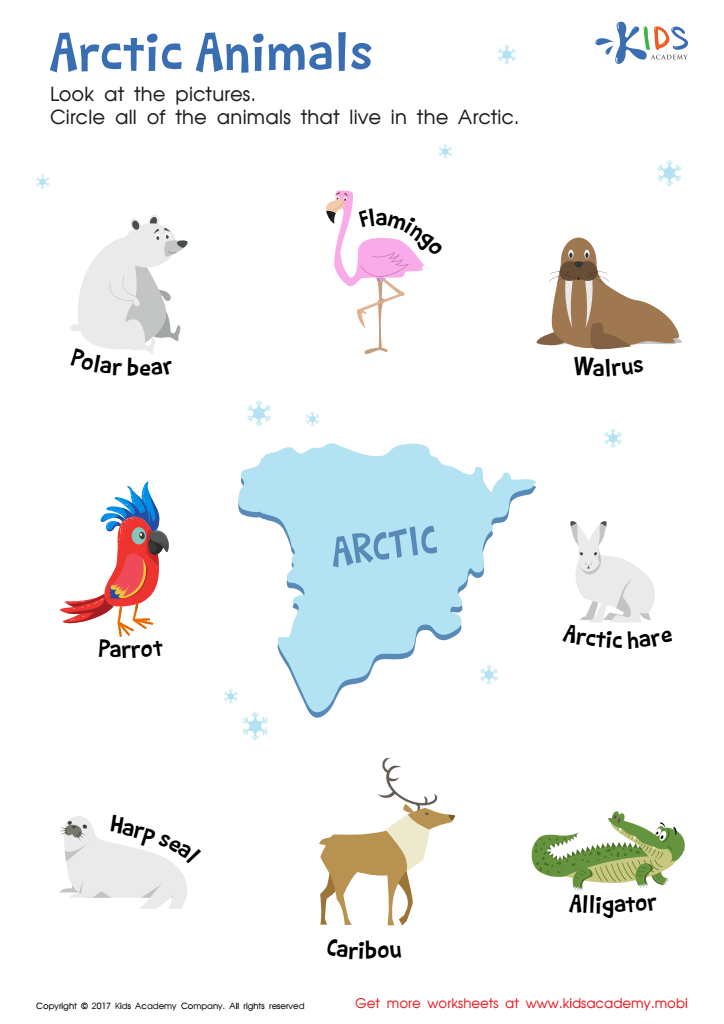

Arctic Animals Worksheet


Turkey Thanksgiving Day Worksheet
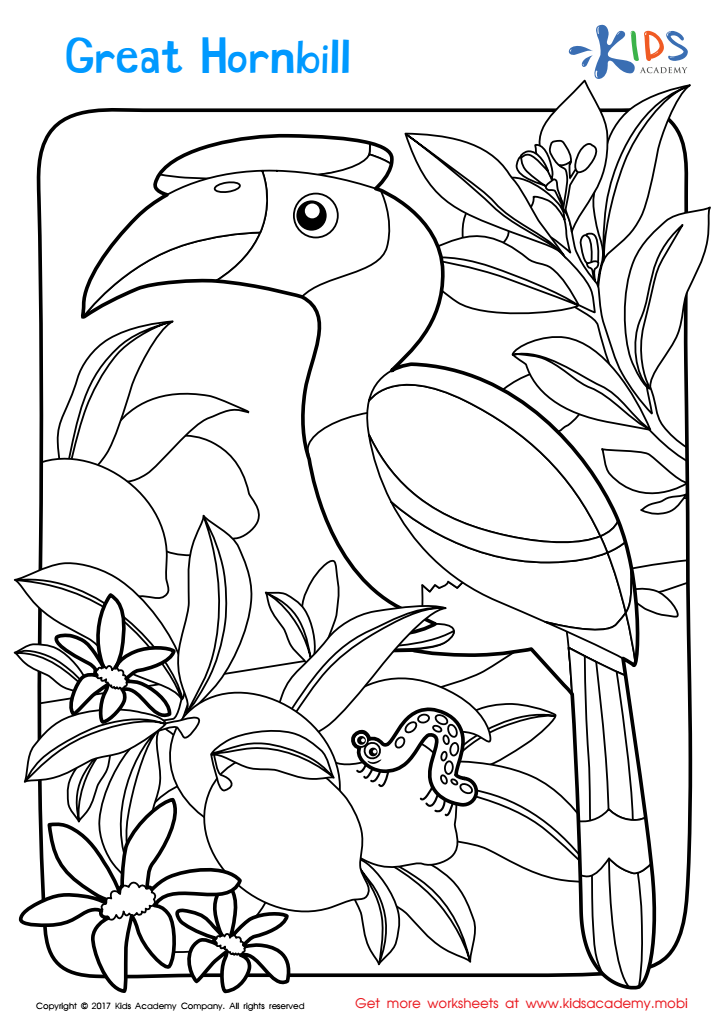

Great Hornbill Worksheet


Animals and Plants: Assessment 1 Worksheet
Animal identification is a vital aspect of early childhood education, especially for children ages 4-6. This activity lays the foundation for a suite of cognitive and developmental benefits essential for young learners. By recognizing and naming animals, children enhance their vocabulary and language skills. They learn new words and concepts, such as habitats and characteristics, significantly expanding their descriptive vocabulary.
Moreover, animal identification cultivates observational skills and attention to detail. Children learn to notice specific features, differentiating between similar and dissimilar animals, which sharpens their analytical abilities. This practice also nurtures curiosity and a love for the natural world, fostering an early appreciation for biodiversity and ecology.
For parents and teachers, this developmental stage is crucial in instilling lifelong learning habits. Engage children in interactive activities, such as visits to the zoo, nature walks, or reading animal-related books, blending education with fun. Using puzzles, flashcards, and games suitable for their age can make learning organic and enjoyable.
By integrating animal identification into early childhood education, parents and teachers can build a strong educational foundation, making learning both a fun and deeply enriching process. Fostering curiosity, literacy, and observational skills from a young age positions children for future academic success and a closer relationship with the environment.
 Assign to My Students
Assign to My Students













